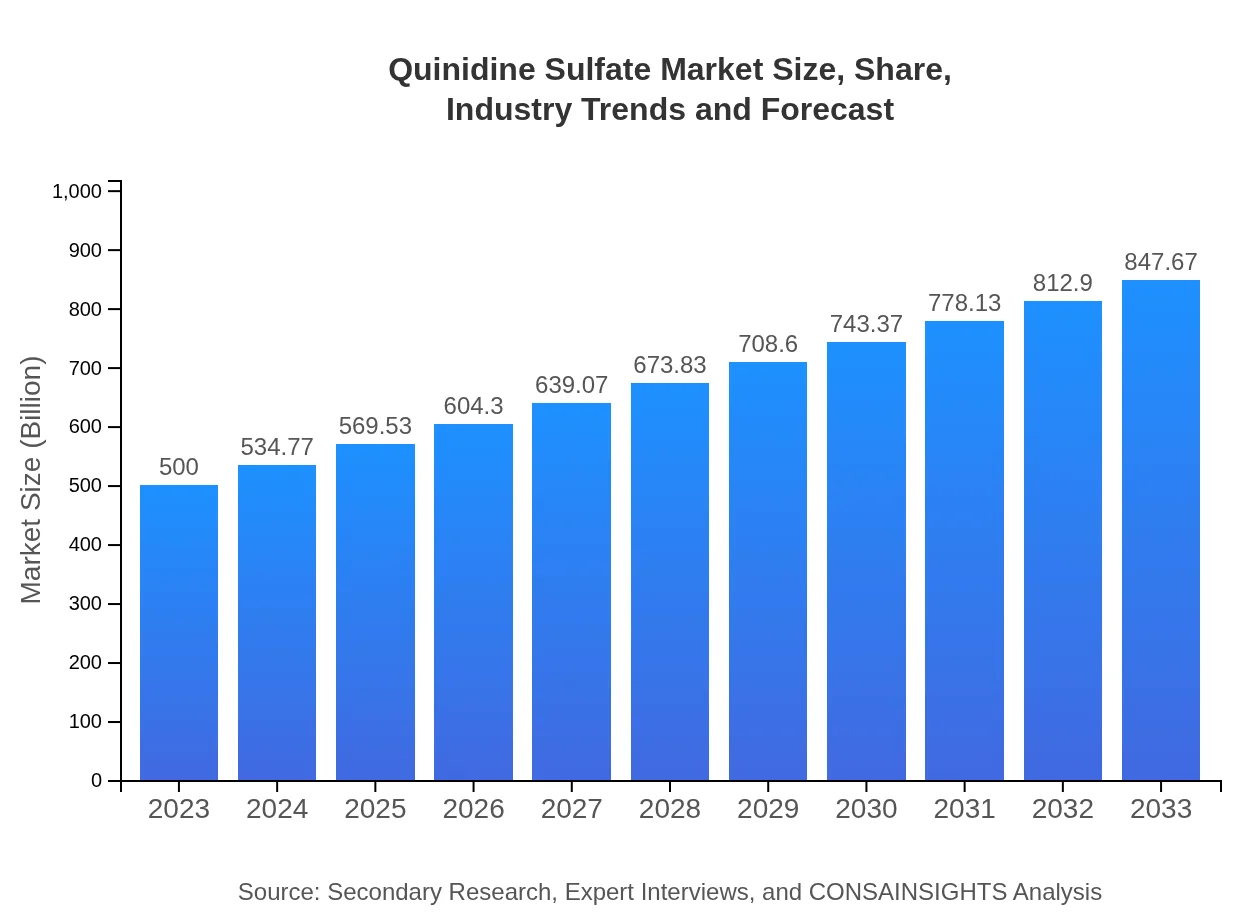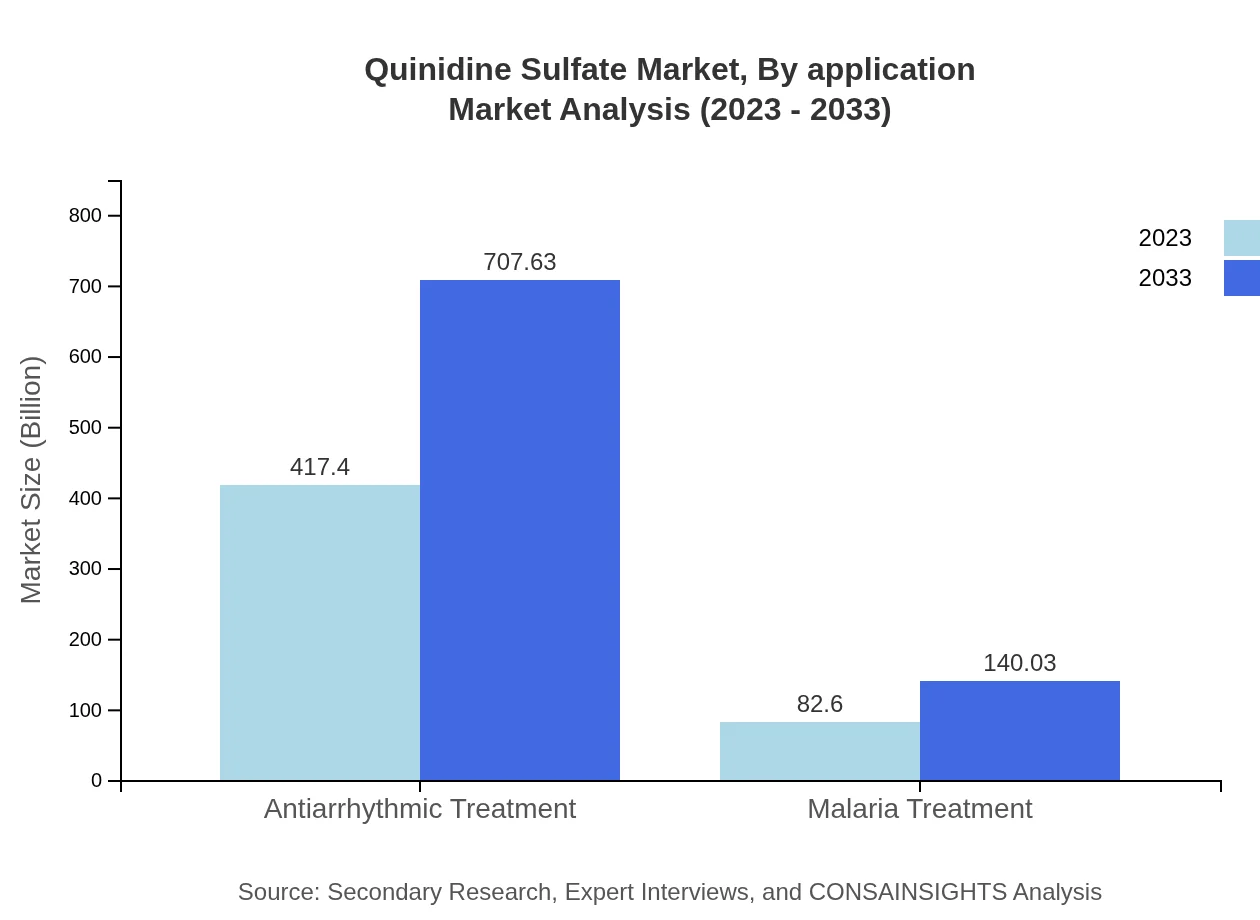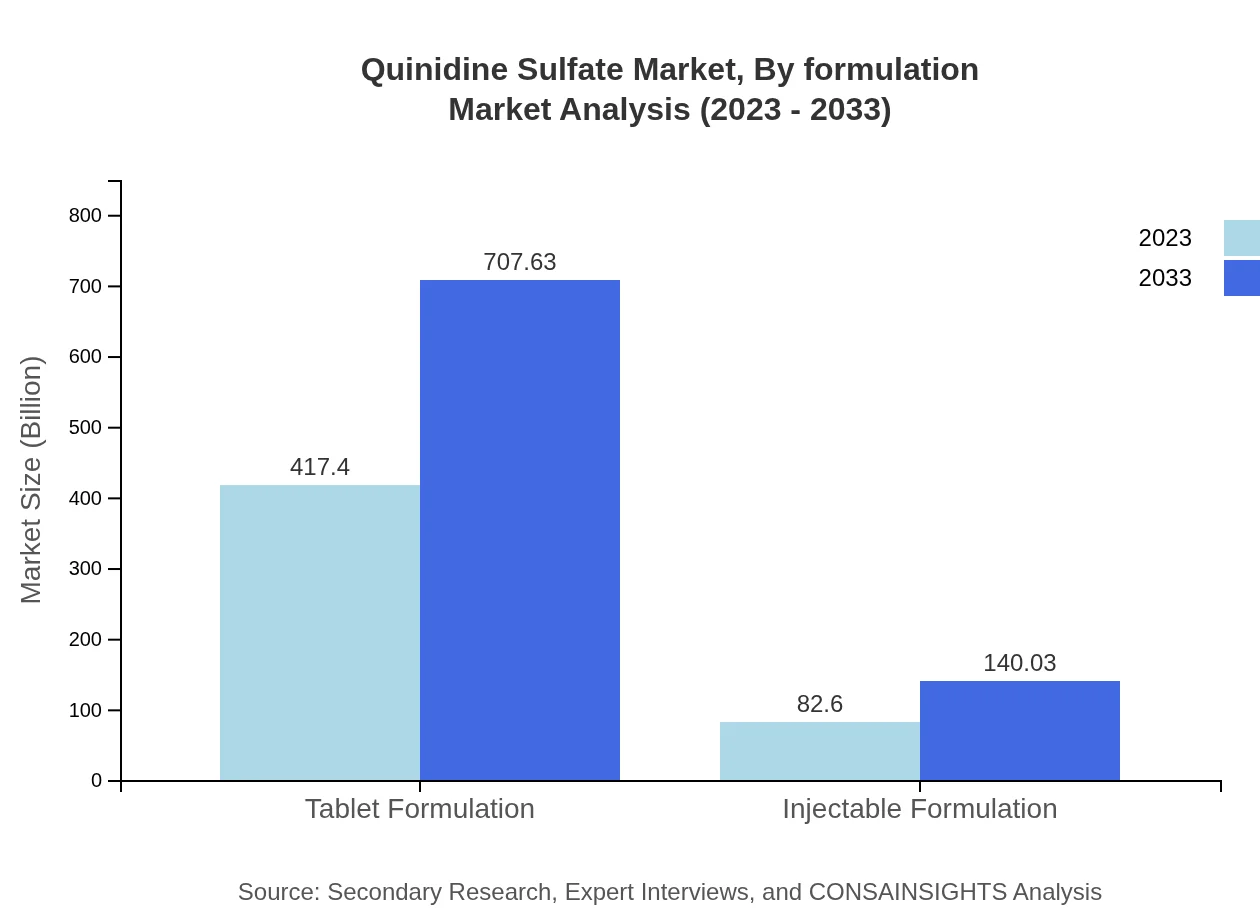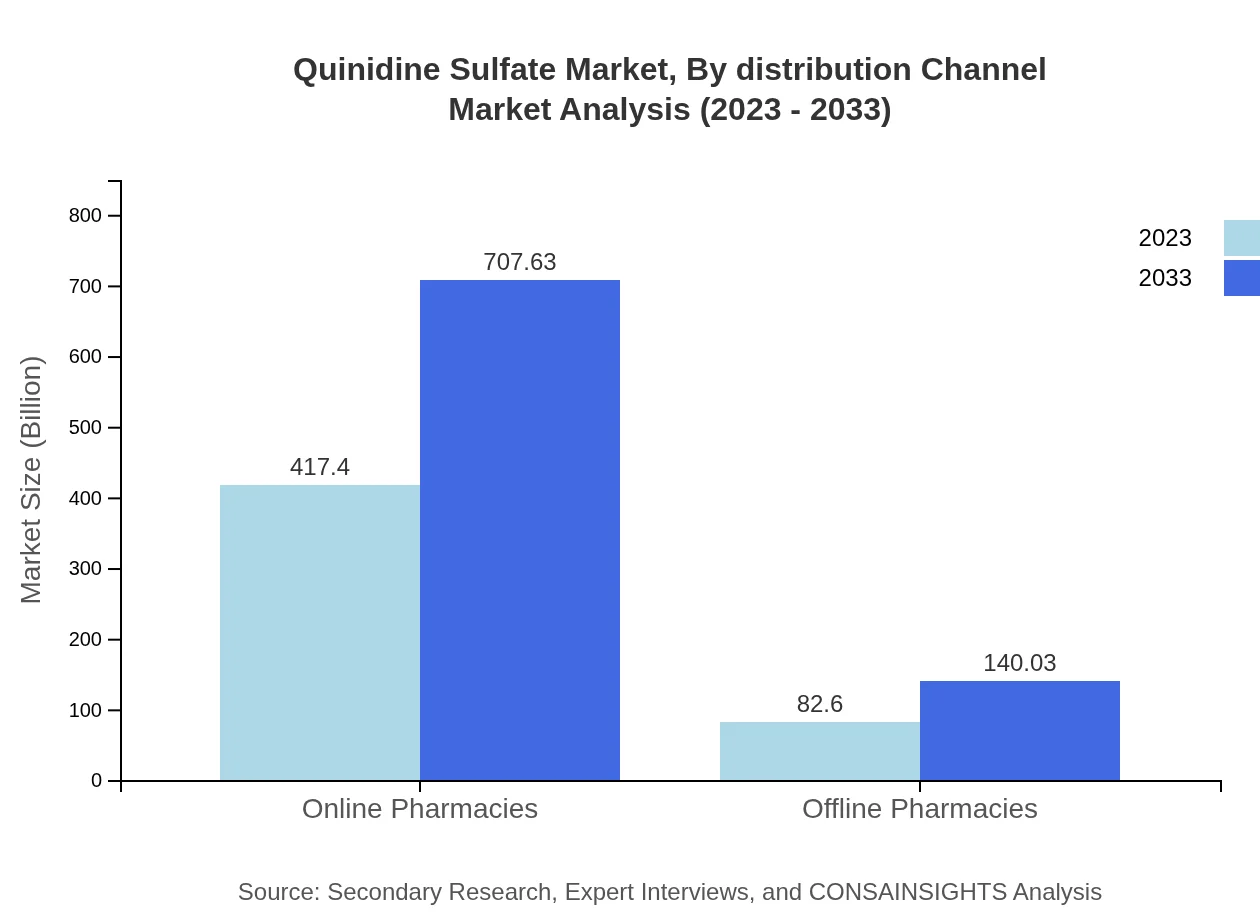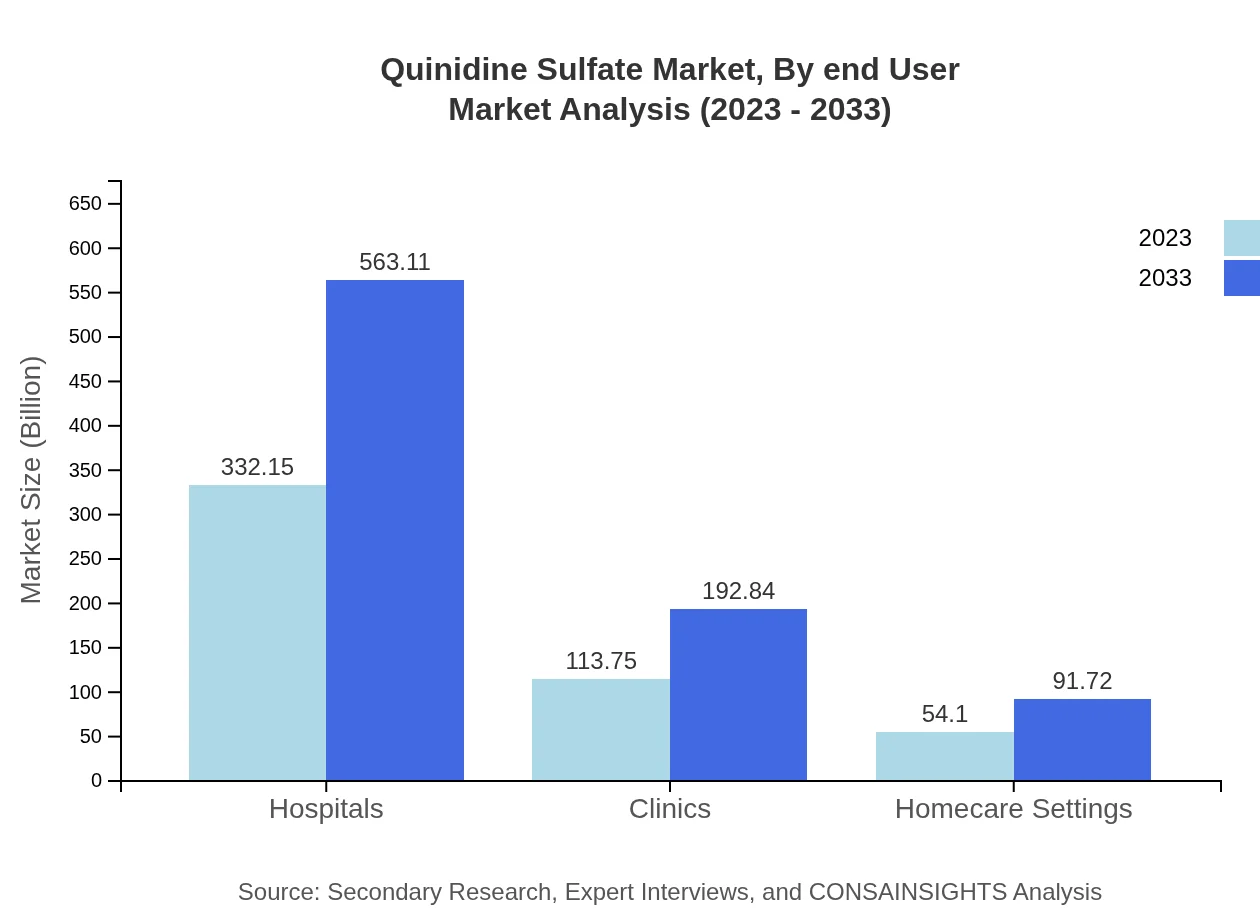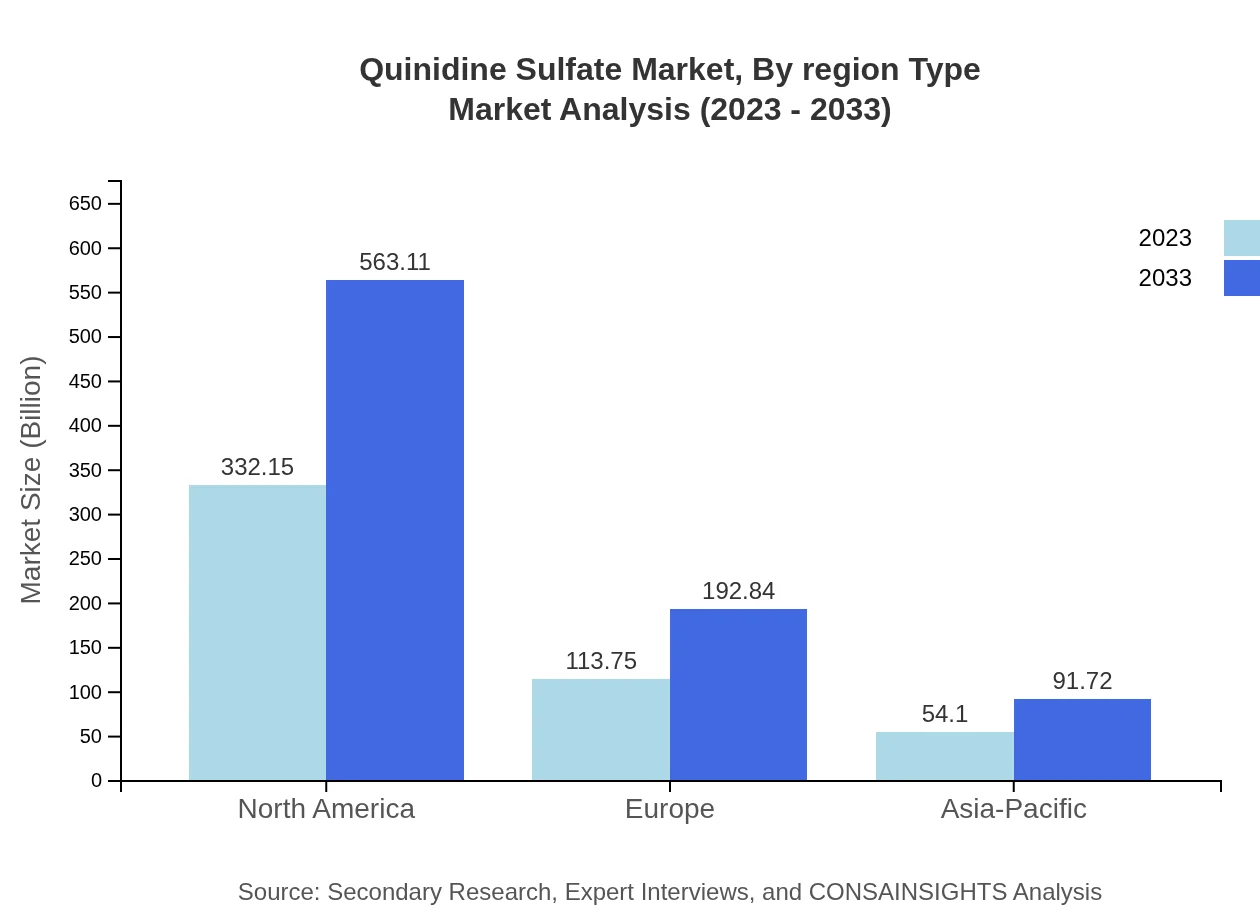Quinidine Sulfate Market Report
Published Date: 31 January 2026 | Report Code: quinidine-sulfate
Quinidine Sulfate Market Size, Share, Industry Trends and Forecast to 2033
This market report provides a comprehensive analysis of the Quinidine Sulfate market, focusing on current trends, industry landscape, and future forecasts from 2023 to 2033. Insights include regional performance and various market segments influencing growth prospects.
| Metric | Value |
|---|---|
| Study Period | 2023 - 2033 |
| 2023 Market Size | $500.00 Million |
| CAGR (2023-2033) | 5.3% |
| 2033 Market Size | $847.67 Million |
| Top Companies | Bristol-Myers Squibb, Pfizer Inc., Mylan N.V., Sanofi |
| Last Modified Date | 31 January 2026 |
Quinidine Sulfate Market Overview
Customize Quinidine Sulfate Market Report market research report
- ✔ Get in-depth analysis of Quinidine Sulfate market size, growth, and forecasts.
- ✔ Understand Quinidine Sulfate's regional dynamics and industry-specific trends.
- ✔ Identify potential applications, end-user demand, and growth segments in Quinidine Sulfate
What is the Market Size & CAGR of Quinidine Sulfate market in 2023?
Quinidine Sulfate Industry Analysis
Quinidine Sulfate Market Segmentation and Scope
Tell us your focus area and get a customized research report.
Quinidine Sulfate Market Analysis Report by Region
Europe Quinidine Sulfate Market Report:
The European market for quinidine sulfate is projected to grow from $141.30 million in 2023 to $239.55 million by 2033, driven by an aging population and increasing incidences of heart-related ailments. The European Medicines Agency's favorable regulations further enhance market prospects.Asia Pacific Quinidine Sulfate Market Report:
The Asia Pacific region is projected to witness significant growth in the quinidine sulfate market, moving from $95.25 million in 2023 to approximately $161.48 million by 2033. The increasing prevalence of malaria and cardiovascular diseases, coupled with growing healthcare infrastructure investments, are propelling market expansion in this region.North America Quinidine Sulfate Market Report:
North America leads the quinidine sulfate market, with a valuation of $186.60 million in 2023, expected to reach $316.35 million by 2033. Factors include a high prevalence of arrhythmias, robust healthcare expenditure, and active pharmaceutical sector. The US is a primary contributor due to extensive research initiatives and well-established healthcare systems.South America Quinidine Sulfate Market Report:
In South America, the quinidine sulfate market is expected to grow from $6.90 million in 2023 to $11.70 million by 2033. This growth is driven by the rising awareness of treatment options for malaria and cardiovascular diseases, along with improving access to healthcare facilities in several countries.Middle East & Africa Quinidine Sulfate Market Report:
In the Middle East and Africa, the market is anticipated to grow from $69.95 million in 2023 to $118.59 million by 2033, with rising healthcare investments and government initiatives to combat infectious diseases playing a significant role in market expansion.Tell us your focus area and get a customized research report.
Quinidine Sulfate Market Analysis By Application
The application segments for quinidine sulfate include antiarrhythmic and malaria treatment, with antiarrhythmic treatments representing a sizable portion of the market, anticipated to grow from $417.40 million in 2023 to $707.63 million by 2033. Malaria treatment is also significant, projected to increase from $82.60 million to $140.03 million.
Quinidine Sulfate Market Analysis By Formulation
In terms of formulation, the tablet form of quinidine sulfate leads the market, expected to maintain a stronghold with sizes starting at $417.40 million in 2023 and growing to $707.63 million by 2033. Injectable formulations are also notable, growing from $82.60 million to $140.03 million during the same period.
Quinidine Sulfate Market Analysis By Distribution Channel
The distribution channels segment reveals a significant share for online pharmacies, projected to grow from $417.40 million in 2023 to $707.63 million by 2033. Offline pharmacies will likewise witness growth from $82.60 million to $140.03 million, reflecting a diverse purchasing landscape.
Quinidine Sulfate Market Analysis By End User
Hospitals are the primary end users of quinidine sulfate products, with revenue growth expected from $332.15 million in 2023 to $563.11 million by 2033. Clinics and homecare settings will similarly see increases, indicating a broad utilization across different healthcare environments.
Quinidine Sulfate Market Analysis By Region Type
The regional type analysis indicates North America as the largest market, with Europe and Asia Pacific following closely. Each region presents unique opportunities and challenges influenced by local healthcare policies, prevalence of diseases, and economic conditions.
Quinidine Sulfate Market Trends and Future Forecast
Tell us your focus area and get a customized research report.
Global Market Leaders and Top Companies in Quinidine Sulfate Industry
Bristol-Myers Squibb:
A prominent player in the pharmaceutical realm, known for its comprehensive therapeutic offerings, including quinidine sulfate for arrhythmia management.Pfizer Inc.:
A key contributor in the global pharmaceutical industry, expanding its portfolio to include essential treatments for cardiovascular diseases.Mylan N.V.:
Recognized for its extensive generic drug offerings, Mylan provides accessible formulations of quinidine sulfate, increasing market penetration.Sanofi:
With a committed focus on research and development, Sanofi leads in novel drug formulations, enhancing therapeutic options in the market.We're grateful to work with incredible clients.









FAQs
What is the market size of quinidine Sulfate?
The quinidine-sulfate market is projected to grow from approximately $500 million in 2023 to a significant value by 2033, fueled by a compound annual growth rate (CAGR) of 5.3%. This growth reflects an increasing demand for its applications in treating heart arrhythmias and malaria.
What are the key market players or companies in the quinidine Sulfate industry?
Major players in the quinidine-sulfate market include various pharmaceutical companies and manufacturers specializing in antiarrhythmic and antimalarial medications. These companies focus on research and development to enhance product offerings and expand market reach, contributing to a competitive landscape.
What are the primary factors driving the growth in the quinidine Sulfate industry?
Key drivers of growth in the quinidine-sulfate market include rising prevalence of cardiac diseases and malaria, awareness regarding treatment options, advancements in pharmaceutical technologies, and increased healthcare spending. These factors collectively contribute to a robust market expansion outlook.
Which region is the fastest Growing in the quinidine Sulfate?
The North American region is expected to experience the fastest growth in the quinidine-sulfate market, increasing from $186.60 million in 2023 to $316.35 million by 2033. Strong healthcare infrastructure and innovative treatment options are pivotal to this growth trajectory.
Does ConsaInsights provide customized market report data for the quinidine Sulfate industry?
Yes, ConsaInsights offers customized market report data tailored specifically for the quinidine-sulfate industry. Clients can request bespoke research reports that focus on specific market segments, regional insights, and trends to support strategic decision-making.
What deliverables can I expect from this quinidine Sulfate market research project?
Deliverables from the quinidine-sulfate market research project typically include comprehensive market analysis, detailed segmentation data, growth forecasts, regional insights, competitor landscape assessments, and actionable intelligence for stakeholders to make informed decisions.
What are the market trends of quinidine Sulfate?
Current trends in the quinidine-sulfate market include increasing adoption in homecare settings, a shift towards online pharmacy sales, and the emergence of innovative formulations. These trends signify evolving consumer preferences and advancements in drug delivery methods.

